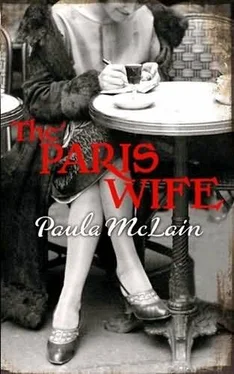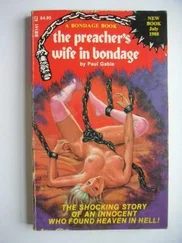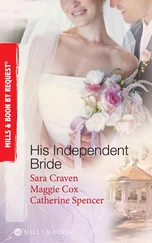At the end of the week, we readied our things for the trip to Chamby. “It doesn’t seem right to simply follow our plans through after all that’s happened,” I said to Ernest as we packed.
“Maybe,” he said. His voice sounded tired. “But what should we do instead?”
“Go back to Paris?”
“That would be worse, wouldn’t it?”
“I don’t think I can bear Christmas Day feeling like this. Everything’s such a bust. Maybe it’s time we think about going home.”
“Stateside? And admit failure? Are you trying to kill me?”
“I’m sorry. It’s just hard to know how to go on.”
“Yes,” he said. He picked up his Corona and carefully nestled it in its black case before snapping the case closed. “It certainly is.”
When we arrived at Chamby, the town was the same. Our chalet was perfect and exactly as before, as were the snow-covered mountains and our proprietors, the Gangwisches, who greeted us as if we were long-lost family members. It was all so welcome after our heavyhearted time in Lausanne that we surrendered completely. Before we’d even unpacked, we put on our skiing togs and caught the last train up the mountain to Les Avants. The sun was fading as we tied on our skis and flew down the powder-laced slope toward the village. With the wind roaring in our ears and stinging our cheeks, we raced along, Ernest just ahead of me, his bad knee bandaged with strong black cloth. He favored it a little, but looked lighter in his body than I’d seen in some time. I was grateful and relieved and sent a small prayer of thanks out to the snowy firs and the creamy sky turning every shade of pink, and Lake Geneva in the distance, flat and polished as glass.
The next day we slept late in our big soft four-poster bed and didn’t even wake when the maid tiptoed in to start the fire. We roused ourselves later, when the room was warm and the porcelain stove purred with the blaze.
“We were right to come, Tatie,” I said and nestled behind Ernest, kissing his neck and the buttons of his spine.
“Yes,” he said. “Let’s enjoy every minute and not think about anything else.”
“There isn’t anything else,” I said. I rolled to cover him, straddling his flat, strong belly. I pushed my nightgown over my hips and then reached to draw him inside of me.
He groaned and closed his eyes, giving himself over completely.
Chink arrived on Christmas Day, and in the end, our holiday wasn’t sad at all. We’d hung stockings for each other and for Chink, and we opened those, and then had a dinner fit for kings. It was only when we sat by the fire late that night, warm brandy in our bellies and more in our glasses, that Ernest brought up the terrible business of his lost manuscripts.
“Oh, kid,” Chink said when Ernest reached the end of the story. “Can you really start over with nothing?”
“I don’t know. I wrote the damned stuff once, didn’t I?” Ernest said. “I have to, in any case.”
Chink nodded seriously.
“I’ve been working like a dog for the Star, ” Ernest went on, “and now we have enough to live on for eight months. Eight months, and I’m going to give all of them to fiction. Only that.”
“That’s my Tatie,” I said. Chink raised his glass, and we all toasted Christmas and each other.
But as the days passed, Ernest’s notebooks and pencils stayed packed away. His Corona never left its black case. He said nothing about this and I didn’t either; I knew better. Meanwhile, we skied all day and sometimes well into the evening, when the sun bled through the cloud line and seemed to be showing us something no one had seen before. We enjoyed every moment of Chink’s good company and each other’s, too. We made love every day, sometimes twice a day-that is, until I told Ernest I’d left our usual precautions back in Paris.
We had always tracked my monthly cycles carefully. Ernest did this himself, the way he kept accounts of everything in our marriage. There was a notebook for recording expenses and incoming monies, another for correspondence, another for noting story ideas and how many words he’d written each day. And there was a notebook marked Hadley , devoted to the rising and falling of my fertility each month so we could have unprotected intercourse as often as possible. In the beginning, in the unsafe times, we used the withdrawal method the way most couples did. “Not so very different from Russian roulette,” Ernest used to joke, and it wasn’t. You could get condoms at the chemist’s or the barbershop, but these were thick and coarse, made of rubber cement-uncomfortable at best and sometimes riddled with holes.
When we first arrived in Paris, Gertrude, who could be wonderfully frank this way, asked if we knew about the diaphragm. Without too much trouble, we found a doctor and got me fitted for one, and this is what we’d used ever since. Ernest knew better than I did which were safe and which weren’t. About a week into our time in Chamby, he reminded me we’d come to the end of our window.
“Could you make the necessary arrangements?” he said when we were in bed one night. This was his usual code. My role was to say, “Yes sir,” as if I were his secretary, and he’d just asked me to make a lunch reservation or send a telegram. But this particular night, I didn’t laugh and didn’t get up to search my stocking drawer for the case. Instead, I said, “Oh dear.”
“Don’t tell me you’ve left it in Paris.”
I could only nod.
“Your timing stinks.” His face was red. I could tell he was very angry.
“I meant to tell you in Lausanne, as soon as I realized, but that was hardly the time either.”
“What else are you keeping from me?”
“Nothing. I’m sorry. I should have told you.”
“I’ll say.” He threw back the bedclothes, then got up and began to pace the room in his underwear, fuming. “Sometimes I wonder who I married exactly.”
“Please be fair, Tatie. It’s not as if I meant to forget it.”
“No?”
“Of course not.” I crossed the room and stood near enough to see his face in the dim. “I didn’t. And yet I’d also be lying if I said I don’t think a baby would be a wonderful idea.”
“Now it comes out. I knew it. We’ve always said I’d get a really good start on things before we’d even talk about a baby. We agreed.”
“I know we did,” I said.
“I’m just finally getting going. Do you really want to ruin it for me?”
“Of course not,” I said. “But I have worries, too. I’m thirty-one.”
“Just. And you’ve never been crazy about children. You don’t care at all for other people’s.”
“It’s different to want one of your own. I don’t have all the time in the world.”
“I don’t either. Life doesn’t often give you more than one shot. I want to take mine now.” His eyes were clear and challenging, the way they always were when he was asking for loyalty. “Are you for me?”
“Of course I am.” I put my arms around his neck and kissed him, but his lips didn’t soften under mine. His eyes, just a few inches from mine, were open and questioning.
“I suppose you think I’m going to lie down with you now.”
“Ernest! I’m not trying to trap you!”
He said nothing.
“Tatie?”
“I need a drink.” He headed for the door, grabbing his robe as he went.
“Please stay so we can talk about this.”
“Go to sleep,” he said, and left the room.
I couldn’t sleep, though, for all my fretting. He didn’t come to bed at all, and in the morning, I dressed and went down to look for him. He was in the dining room having his morning coffee, already wearing his skiing togs.
“Can we please make up, Tatie?” I said, going to him. “I’m just sick about everything.”
Читать дальше












